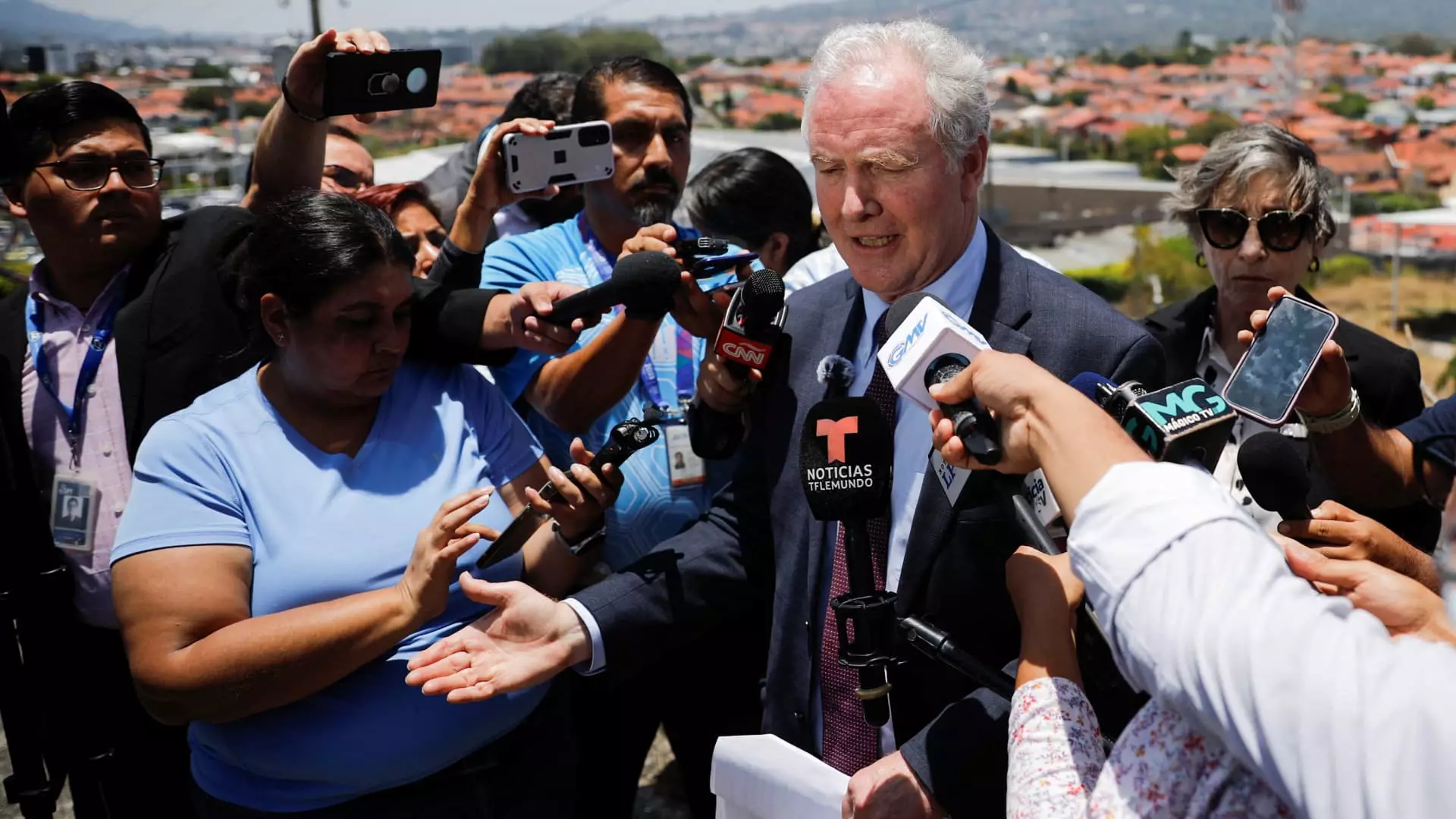In a strikingly bold move, Maryland Senator Chris Van Hollen’s recent trip to El Salvador highlighted the critical importance of due process in the American justice system. While the media momentarily fixates on individuals entangled in the legal web, Van Hollen’s resolute stance serves as a chilling reminder—what’s at stake is not only the fate of one man, Kilmar Abrego Garcia, but the integrity of our democratic values. His assertion that we cannot allow the erosion of constitutional rights for one individual stands as a powerful indictment against a system that increasingly seems willing to overlook justice in favor of expedience.
The Fallout of Authoritarian Practices
Van Hollen’s narrative unfolds against a backdrop of increasingly authoritarian practices endorsed by previous administrations. The acknowledgment from the Trump administration regarding Abrego Garcia’s wrongful detention is a testament to the disturbing reality that the legal system can be weaponized. It raises urgent questions about the boundaries of our rights and the lengths to which the government will go, even to uphold misguided policies. Should we allow a democratic body to operate under the pretense that due process is optional? Absolutely not. Van Hollen’s advocacy, therefore, emerges not just as a defense of one man, but as a profound challenge to a troubling status quo.
A Constitutional Crisis Ignited
In his appearances on various news platforms, Van Hollen did not shy away from declaring the current state of affairs a “constitutional crisis.” The severity of his assessment demands attention and introspection from the public. Intricacies involved in governance must be weighed against the simplicity of maintaining fundamental civil rights. Allowing the government to dismiss the rule of law for one individual inevitably creates precedence that could lead to a slippery slope, threatening the rights of all citizens. This isn’t just rhetoric; it’s a matter of urgency that begs active citizen engagement to demand accountability.
Empathy Amidst Politics
During his visit to El Salvador, Van Hollen’s descriptions of Garcia starkly illustrated the human cost of political missteps. Speaking of the profound trauma Garcia endured—from abduction to incarceration—the senator highlighted an often-overlooked aspect of immigration discourse: human lives hang in the balance. It’s easy to be swept away by political talking points, but the human element adds nuance to the cold realities of policy implications. The Senator’s empathy exemplifies how governance should operate: intertwining justice with compassion, not merely legalism devoid of humanity.
A Call for Vigilance
Van Hollen’s efforts should resonate deeply within the broader political landscape. A vigilant citizenry must rise alongside leaders who dare to confront unjust practices head-on. The embers of activism, ignited by instances like Garcia’s wrongful deportation, provide opportunities to rally support for a more principled approach to governance. Each case of injustice should fuel our collective resolve to uphold rights that are—at their core—designed to protect each and every citizen.
Vigilance in the face of oppressive governmental excesses is not merely an option but our civic duty. Only through such awareness and collective action can we hope to navigate towards a society where due process isn’t a privilege for the few but a guarantee for all.


Leave a Reply